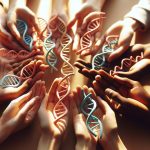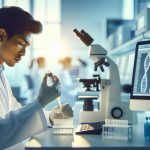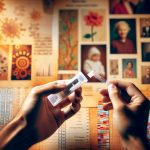In a conversation with Anu Acharya, the brains behind MapMyGenome, we dive deep into how her team is committed to sticking by their customers. They don’t stop until every health puzzle is solved, ensuring peace of mind and well-being for those they serve.
What is the purpose of your organization?
Our mission is geared towards empowering individuals with deeper insights into their personal health. By delving into one’s genetic makeup and examining how it interacts with various lifestyle choices—particularly in areas concerning diet and nutrition—we’re able to provide personalized advice. Our goal is simple yet profound: we strive to guide people toward actions that diminish their disease risk, paving the way for a healthier existence.
Understanding your genetic blueprint can unlock secrets about potential health risks. However, knowledge alone isn’t enough. It’s the fusion of this insight with an analysis of daily habits that truly makes a difference. Eating habits, exercise routines, and even sleep patterns play significant roles in shaping our wellbeing.
By synthesizing this information, we craft tailored recommendations aimed at fostering optimal health outcomes. Whether it’s tweaking dietary preferences or modifying workout plans, our suggestions are designed not merely as band-aid solutions but as fundamental changes for lasting impact.
In essence, our approach places individuals at the helm of their health journey. We believe that by making informed decisions grounded in a comprehensive understanding of one’s genetics and lifestyle, everyone can navigate towards a more vibrant and disease-free life.
Explaining the Process of Genome Mapping
Genome mapping serves two primary functions. For starters, it’s a proactive step for those curious about their genetic makeup and potential predispositions. This knowledge allows individuals to take early actions for a healthier life. On the flip side, doctors often recommend genome mapping as a diagnostic tool for identifying specific medical conditions.
Dubbed personal genomics, the first application focuses on prevention. It’s accessible either via online platforms or through partner hospitals, involving an easy sample collection process—usually just a swab that’s sent back to the laboratory.
The second application, known as clinical genomics, zeroes in on analyzing particular genes of interest to diagnose or understand specific health conditions better.
Once the lab receives your sample, specialists get to work extracting DNA and pinpointing genetic variants across your genome. This leads to a comprehensive report detailing your genetic landscape, followed by a counseling session aimed at translating complex genetic data into actionable lifestyle recommendations. These suggestions typically encompass dietary and exercise advice tailored to complement your unique genetic profile. Additionally, further medical consultations and screening tests might be proposed to preempt any potential health issues flagged during the analysis.
In essence, genome mapping offers profound insights into one’s genetics, paving the way for informed decisions about diet, exercise, and overall health management — all grounded in cutting-edge scientific research.
Is the public knowledgeable about genomics?

In recent times, particularly following the global pandemic, there’s been a noticeable increase in awareness about our activities. Notably, our laboratory has expanded its services to include testing for COVID-19. This addition is significant given our capability to process a vast number of samples swiftly.
Transitioning into a facility that conducts COVID-19 tests required us to adopt an entirely new set of safety measures. This change was not just about adapting; it was a transformative step signaling how science and health sectors are evolving in response to emerging challenges.
Moreover, this period has shed light on the importance of personal health management. It’s become clear that individuals have more control over their well-being than previously understood, emphasizing the power of strengthening one’s immune system. The shift towards acknowledging and actively participating in one’s own healthcare signifies a pivotal movement towards greater health consciousness among the public.
What sets you apart from your competitors?
At Mapmygenome, the customer experience is elevated by offering extensive one-on-one consultations with a genetic counselor, lasting over an hour. This personalized approach allows for tailored advice, greatly benefiting those who seek it. Additionally, recognizing the urgency of the global health crisis in April, the company innovated by providing customers with a detailed analysis of their risk and immunity in relation to COVID-19. This initiative was contingent on customer consent to re-examine their data, enabling them to gear up more effectively against the virus.
Another unique aspect of Mapmygenome‘s service is its collaborative efforts beyond initial genetic counseling. After receiving their genetic reports and recommendations, customers are introduced to partner companies specializing in vitamins and brain assessment. These collaborations are carefully chosen to further assist individuals in optimizing their health based on their genetic information.
In essence, Mapmygenome stands out not just as a personal genomics company but as a proactive health partner committed to leveraging DNA insights for enhanced well-being. Through direct engagement and strategic partnerships, it empowers customers with knowledge and resources tailored specifically to them, making strides toward more informed healthcare choices.
What are the key health advantages of our service?
Cultivating good habits plays a crucial role in maintaining our health. A significant number of diseases that affect our lifestyle, such as heart issues and diabetes, can actually be avoided. Surprisingly, statistics show that 80% of heart-related conditions and 60% of cases of diabetes could be prevented with the right preventive measures.
There’s a common misconception floating around that if your family has a history of certain diseases, you’re bound to suffer from them too. However, this isn’t entirely accurate. While genetics do influence our health to some extent, they don’t seal our fate. We often emphasize to people that their genetic makeup should serve more as a beacon than an unchangeable verdict on their health.
Understanding that we have the power to shape our own health destiny is empowering. By adopting healthier habits and making informed lifestyle choices, we can significantly reduce the risk of developing many preventable diseases. It’s about recognizing that while we may have inherited certain genetic predispositions, our daily actions play a pivotal role in determining our overall well-being.
Your opinions on the industry’s future?
Delving into the realm of genetics offers a fascinating lens through which we can better grasp why diseases impact diverse groups in varied ways. This becomes particularly pertinent when discussing health crises, such as the COVID-19 pandemic. A burning question on many researchers’ minds is the role genetics may play in determining an individual’s vulnerability to this virus. Essentially, it’s about pinpointing if there exists a genetic blueprint that makes certain people more susceptible than others.
Understanding these genetic factors not only sheds light on personal health risks but also illuminates broader patterns of disease spread and impact across populations. It allows for a tailored approach to healthcare, where interventions can be more accurately directed towards those at greater risk due to their genetic makeup. In essence, it paves the way for precision medicine – a future where treatments and preventive measures are customized to an individual’s genetic profile.
This exploration into our genetic constitution and its influence on disease susceptibility underscores the importance of integrating genetics into public health strategies. By doing so, we equip ourselves with the knowledge needed to combat diseases more effectively, safeguarding both individuals and communities at large. It’s a step forward in unraveling the complexities of human health and disease dynamics, offering hope for more resilient societies against current and future health challenges.

















